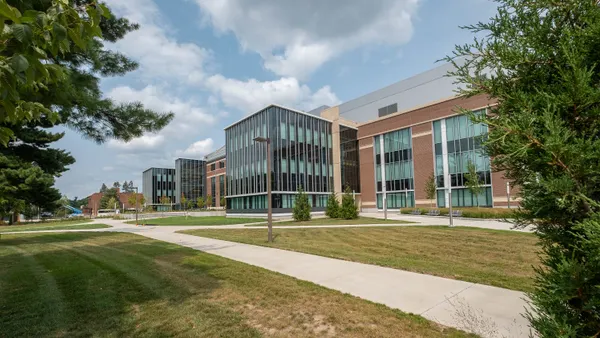Dive Brief:
- The New York City Roosevelt Island campus of Cornell Tech will soon boast the world's tallest Passive House-certified building at 270 feet tall, the Engineering News-Record reported.
- Hudson Companies and Related Companies, who are developing the $115 million, 26-story, 536-bed dormitory, expect a 70%-90% reduction in energy costs and project an annual 882-ton carbon dioxide reduction.
- Construction of the building will employ the signature Passive House standard of air tightness — as well as heavy insulation, heat recovery and optimum ventilation — in order to minimize the building's heating and cooling needs.
Dive Insight:
Under the strict Passive House standard, the residential tower is allowed "0.6 air changes per hour at 50 Pascals of pressure," which is verified through a "blower door test." According to ENR, the building has already passed its air-tightness tests.
The dorm, which will open in August 2017, also incorporates a "thermally-insulated" facade with panels that are taped and sealed from the inside. Because the structure is so airtight, its design also includes a filtered fresh air system, with ceiling-level vents in each room.
Critical to a successful Passive design is buy-in from residents, which, in this case, means hundreds of college students. Because the mechanical system in the dormitory is of a much smaller design than usual due to the building's extreme air tightness, doors and windows left open all night have the potential to throw temperatures throughout the entire building out of balance. Therefore, Cornell administrators need to ensure that resident students understand that the Passive House standard is somewhat of a "team sport" and requires their cooperation.
The use of the Passive House standard as a way to achieve energy efficiency is growing, with the latest collaboration to incorporate the standard involving a partnership between offsite "high performance" building manufacturer Ecocor and Richard Pedranti Architect. The two have developed a line of prefabricated homes that use Passive House Institute-certified wall assemblies. As in Sweden, where Ecocor said 90% of new homes are built in factories, the company said it can ensure high quality before the homes are delivered and assembled onsite.










